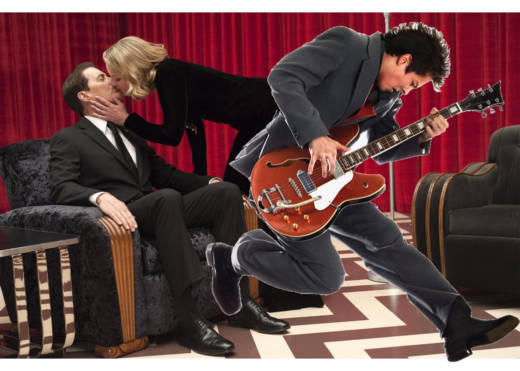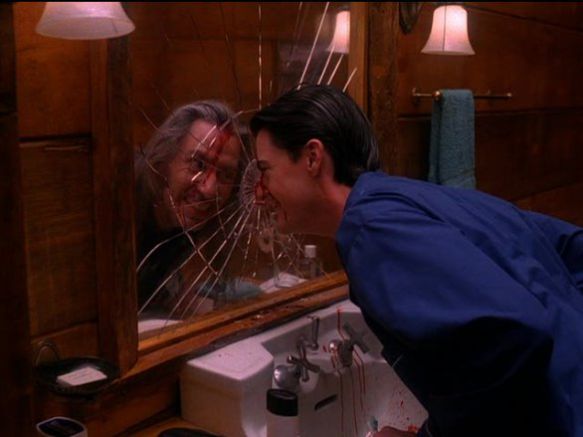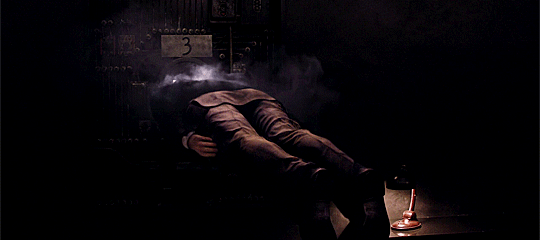As we rapidly approach the much-anticipated finale of Twin Peaks: The Return this Sunday, it's amazing to look back on a season that has been full of jaw-dropping surprises. It feels like, 16 episodes in, we really have seen it all: evil box monsters, Agent Cooper in space, sky vortexes, tulpas, face-removal, a talky tree, head-crushing, terrifying woodsmen (#gotalight?), a superhuman gardening glove, the inside of an atom bomb, teapot David Bowie, too much vomit, an eyeless woman, and -- oh yes -- bands out the wazoo.
If there has been any flaw at all in this magnificent and mind-bending return to one of the '90s' greatest TV shows, it absolutely has to be the jarring insertion of a musical guest into almost every episode. It's not that the bands have been bad. On the contrary, across the board, the artistry on display has been incredible and very well curated. The problem isn't the music itself; the problem is how it's being dropped into the show.
In the original seasons of Twin Peaks, music was a dominant force, thanks to Angelo Badalamenti's extraordinary score. Prominent though it was, the soundtrack was weaved seamlessly into each episode; a character in and of itself, the score was as memorable as the Log Lady and as essential as Agent Cooper. In addition, when Julee Cruise performed, it was within a context that made sense to the storyline.
Not so in Twin Peaks: The Return. The Bang Bang Bar itself has played almost no role at all in this series, save for James Hurley's fight, Audrey Horne's (amazing) dance, and some peripheral character introductions, and yet, up it pops most weeks (episodes 1, 7, and 11 being exceptions) totally out of the blue, forcing us to sit through a band that bears no relevance to actual plot or proceedings. (The other exception to the rule here is James Hurley's performance of "Just You" in episode 13, though that did carry a whiff of David Lynch trolling the viewer because of how much that song was mocked the first time around.)




